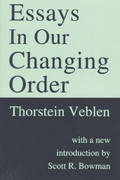Question
Many large cities have enacted living wage ordinances that require paying a minimum wage that is higher than the state or federal minimum wage. Moreover,
Many large cities have enacted living wage ordinances that require paying a minimum wage that is higher than the state or federal minimum wage. Moreover, sometimes living wage ordinances state two different minimum wages - one for workers who also receive employer-paid health insurance and one for workers who do not receive health insurance.
a. Why would living wages distinguish between workers based on their health insurance? In particular, what "problem" might the local government be trying to solve?
b. Sometimes living wage ordinances apply only to the city government, meaning that the city is required to pay all city workers a high minimum wage while private firms are only subject to state or federal minimum wages. In this case, the living wage creates a covered sector and an uncovered sector. Which workers are in the covered sector? Which workers are in the uncovered sector? What might city officials, who have to manage to a budget, do in response to a living wage ordinance that only applies to city workers?
Step by Step Solution
There are 3 Steps involved in it
Step: 1

Get Instant Access to Expert-Tailored Solutions
See step-by-step solutions with expert insights and AI powered tools for academic success
Step: 2

Step: 3

Ace Your Homework with AI
Get the answers you need in no time with our AI-driven, step-by-step assistance
Get Started


